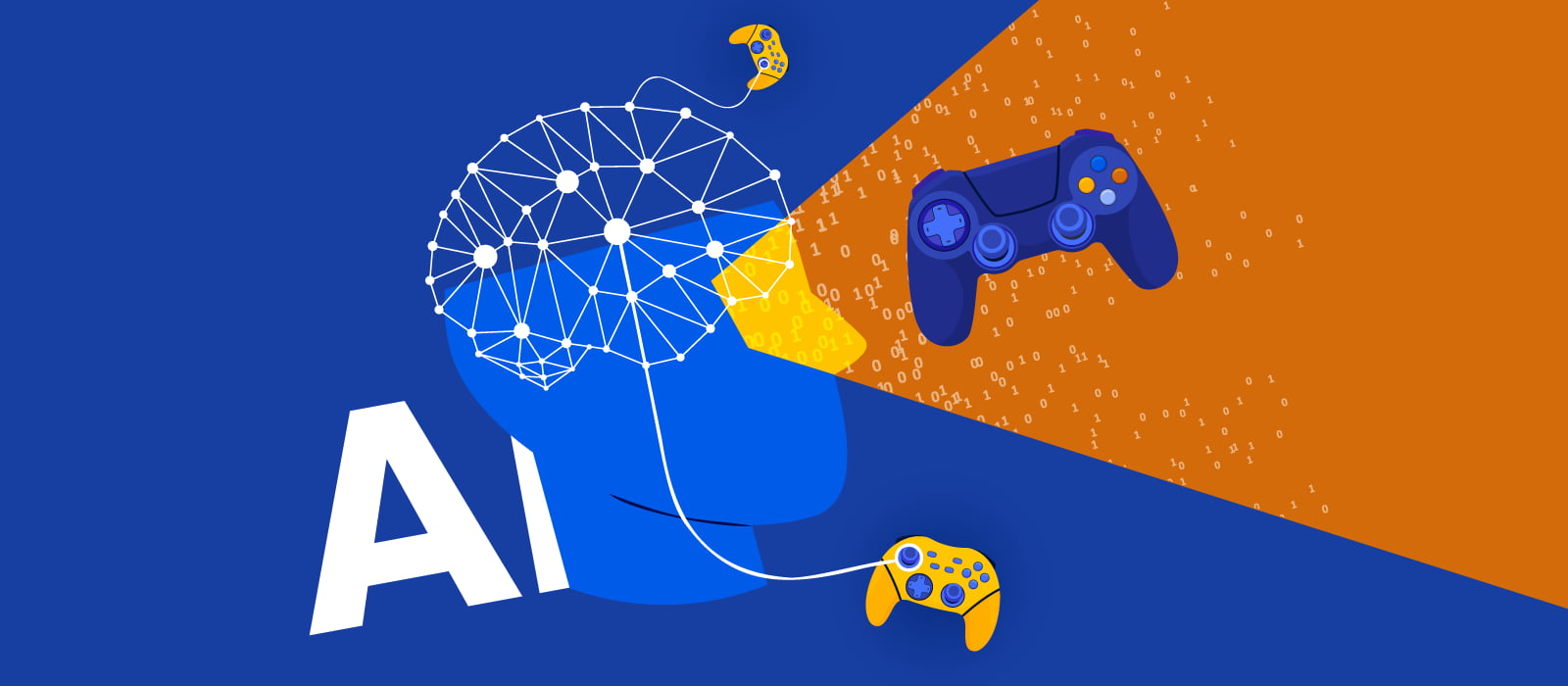The rise of LLMs and other forms of artificial intelligence has totally transformed the landscape of tech over the last two years. Evolving from expensive and niche tools to become widely used by the vast majority of users.
Being deeply tied to tech, video games are drawing on this newfound power. With developers using existing AI tools or even creating their own to radically alter their process of development.
There are two broad categories within which AI tools are currently being employed in the games industry. First, they are used to facilitate game creation, and second they are being used within games to enhance player interaction.
Let’s take a brief look at the key ways AI is changing the face of game development!

Table Of Contents 👉
Powering New Workflows
For creators, one of the most exciting and appealing applications for AI is its rapid generation of resources. This is seeing AI being employed across the spectrum of game development jobs to supercharge productivity; allowing more ideas to be brought to the table, discussed and, eventually, developed.
Behind the scenes, AI tools are being used to help create game concepts, concept art and more. Allowing creators to quickly and, perhaps more importantly, cheaply communicate their vision to a team.
For programmers, specialty AI tools are also helping to supercharge the process of coding and implementing games. Working as programming assistants effective at diagnosing issues, bug checking and suggesting more approaches.
AI-Driven Game Design
On an even more granular level, game developers are utilising AI tools to assist with analytics; in turn helping them with complex development tasks like balancing. This is being done by providing the models with play session inputs for analysis.
Allowing for AI models to suggest changes which may be difficult for humans to spot without spending considerable time and effort tabulating the data themselves.
AI Art and Assets
AI art has got a bad name over the last few years, and it is certainly controversial. But it is also incredibly helpful when it comes to game development.
The ability to produce temp and concept art relatively quickly can help solidify a group vision, allowing for better communication with artists and designers down the line.
At the cutting edge, we also have AI which is capable of producing 3D assets. While this is not yet commonplace, due to technical limitations, it’s clear that AI asset creation may well become common in the years to come.
This type of art and asset generation can really help small and indie teams. Lowering the bar to entry, both in terms of technical skills and financially.
For example Roblox game developers could find considerable use for these systems. If you’re a fan of Roblox, you can buy Anime Defenders accounts now!
Content Generation
From roguelikes to generated worlds, video games have long been interested in the possibility of procedural generation. These carefully tuned algorithms have automatically created game worlds for millions of players—from No Man’s Sky to Minecraft to Spelunky.
While these generation tools have been mostly hand-crafted, it’s clear that AI will begin to play a larger role in procedural generation as developers learn how to develop models effective at procedural generation.
Generative NPCs and In-Game Interactions
Beyond creation, AI models are also starting to make their way into games themselves. With a number of indie releases already including NPCs fuelled by AI models.
The appeal of this is easy to see, as it liberates player interaction to be, well, anything. With the AI model then generating a response.
Using AI in gameplay isn’t yet commonplace, but it’s easy to see how it will totally revolutionise genres like the RPG. Imbuing players with a newfound sense of freedom.
The Challenges of AI Game Development
AI tools offer tremendous potential for game developers, but they also present unique challenges on a number of levels.
First off, the skills required to create effective AI tools are totally different to those needed for game development. In other words, most developers will find themselves using third party AI tools instead of developing their own. Which can be complicated.
AI also has plenty of ethical considerations pertaining to data privacy, data biases and more. If these elements go unchecked, they could lead to issues. Especially if players are interacting with the systems directly within the games.
The Future of AI in Gaming
AI tools present a number of exciting possibilities for game developers and players alike. But their use isn’t without issue.
As AI systems continue to develop embed themselves in the modern world, we are sure to see more and more AI in gaming. But it’s up to game developers and players to ensure that these AI models are used responsibly and ethically.
Stories You May Like
